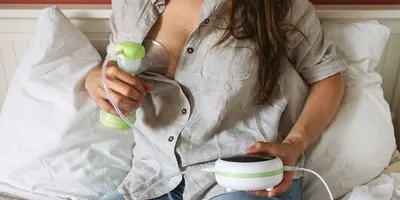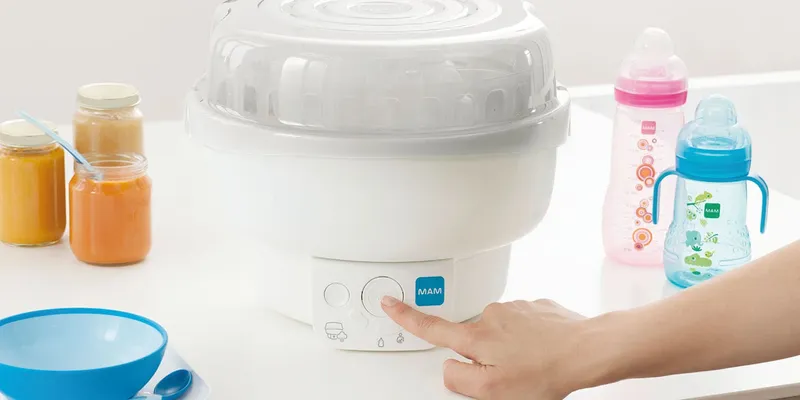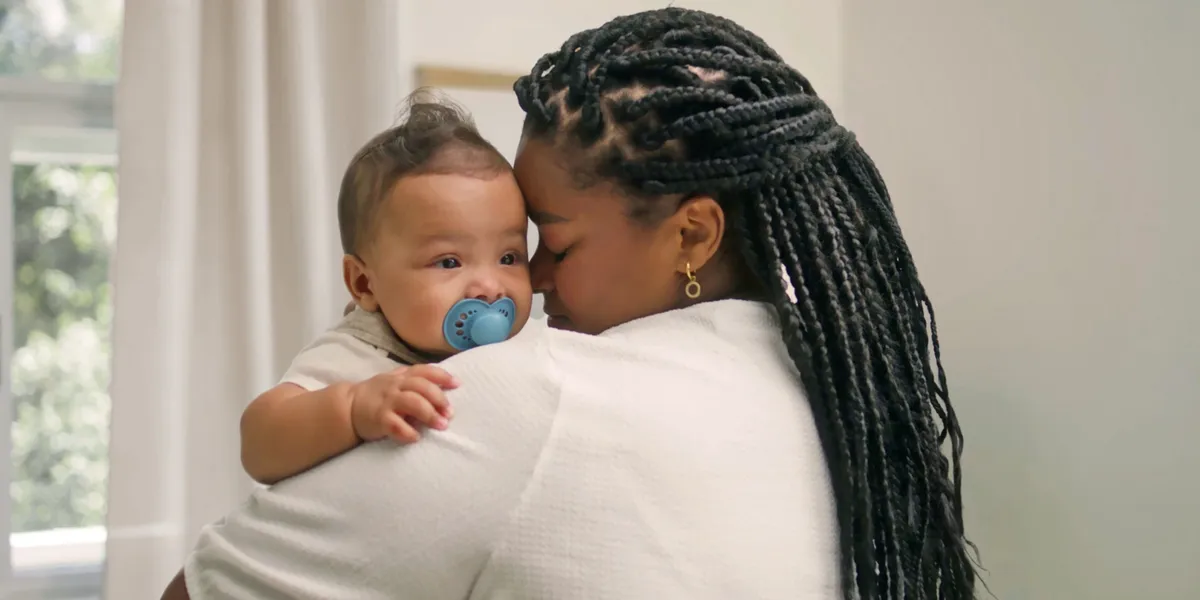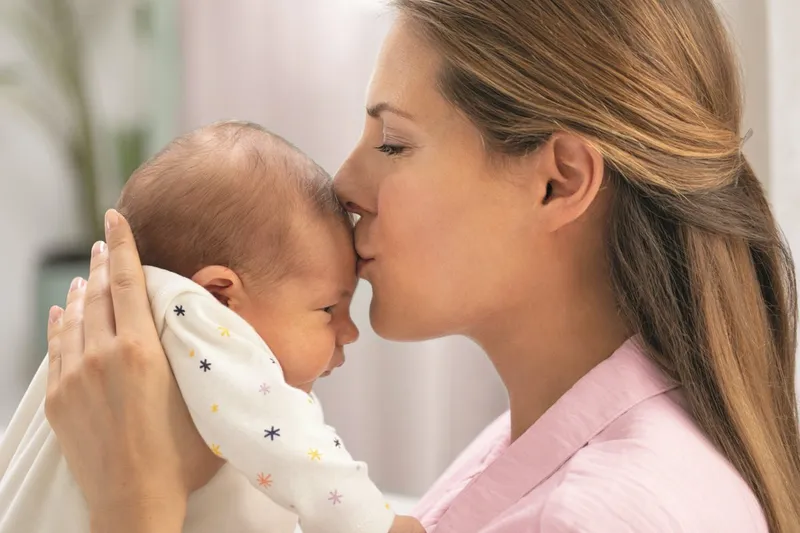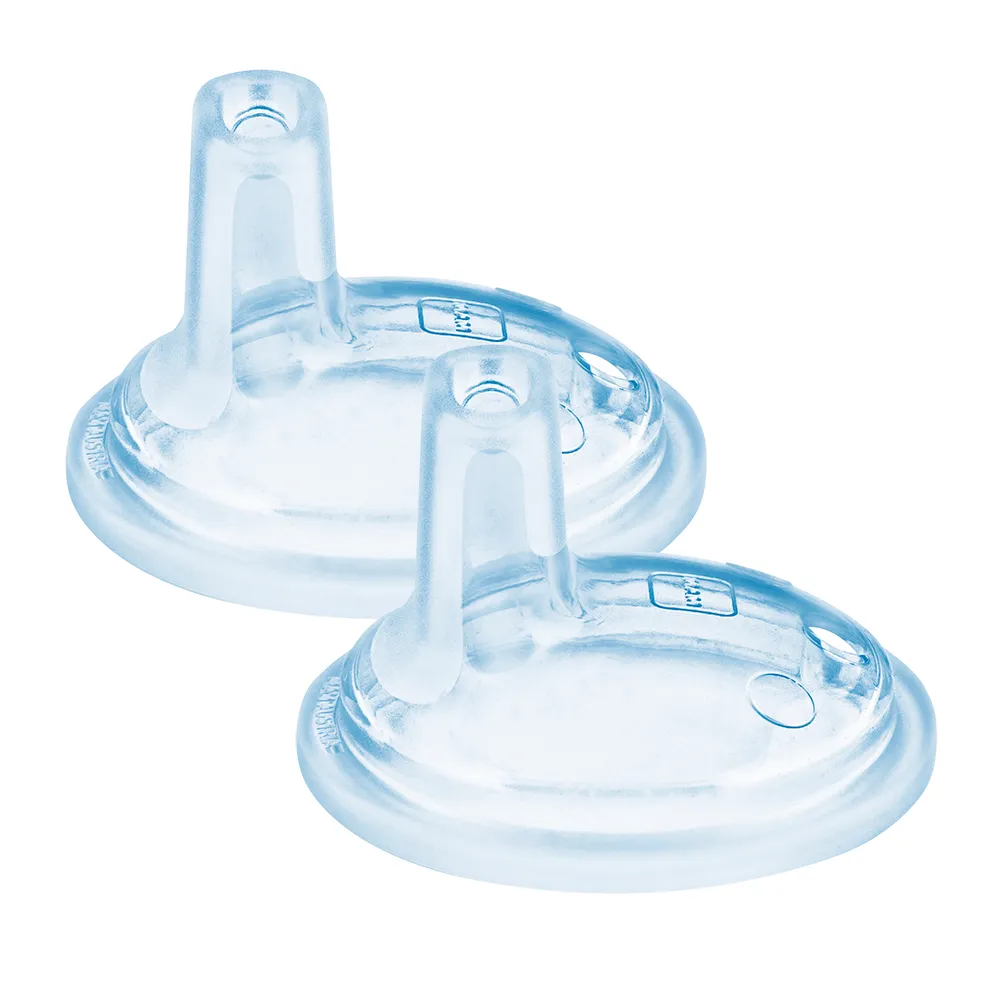Extra Soft Cup Spout - for Drinking Cups
The Extra Soft Cup Spout makes it particularly easy to transition from breast or bottle to glass.
- Spill-proof - perfect for baby to practise drinking from a cup
- With SkinSoft™, a silky-soft silicone surface which babies instinctively like, for a familiar drinking feeling
- Fits on all MAM cups
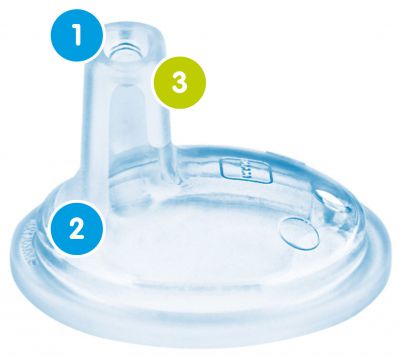
1. SLIT OPENING
Spill-free - an ideal fit for babies’ drinking skills. Allows babies to control flow rate
Accepted by 94%* of babies. For a familiar feeling
Getting one step closer to drinking from the rim of a regular glass
| Accessories: | Cup Accessories |
|---|---|
| Age: | 4+ months |
| Product: | Teat/ Spout |
| Sets, Multi- or Combi Pack: | Double Pack |
| Teat Material: | Silicone |
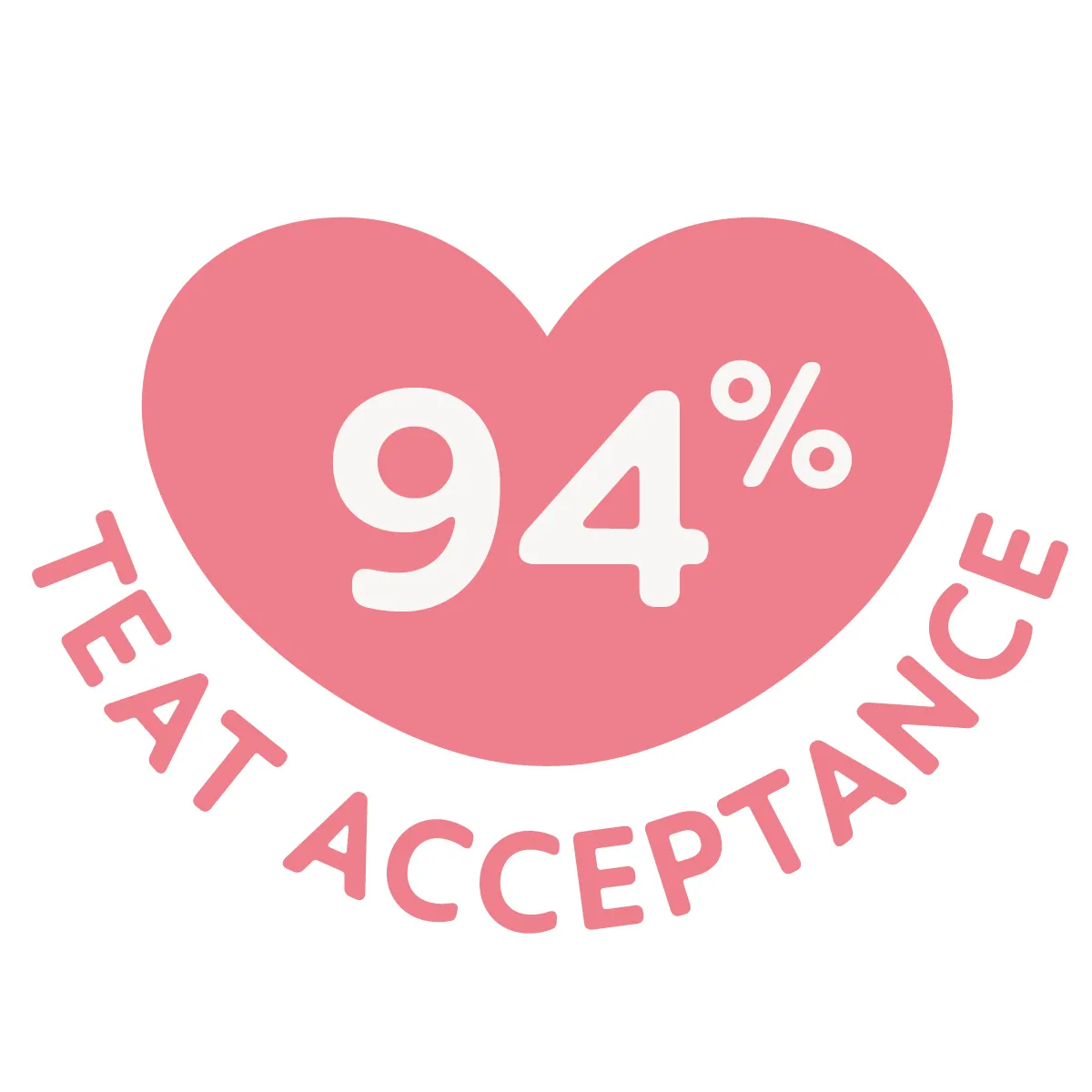
94% teat acceptance: easily accepted by babies – for a familiar feeling
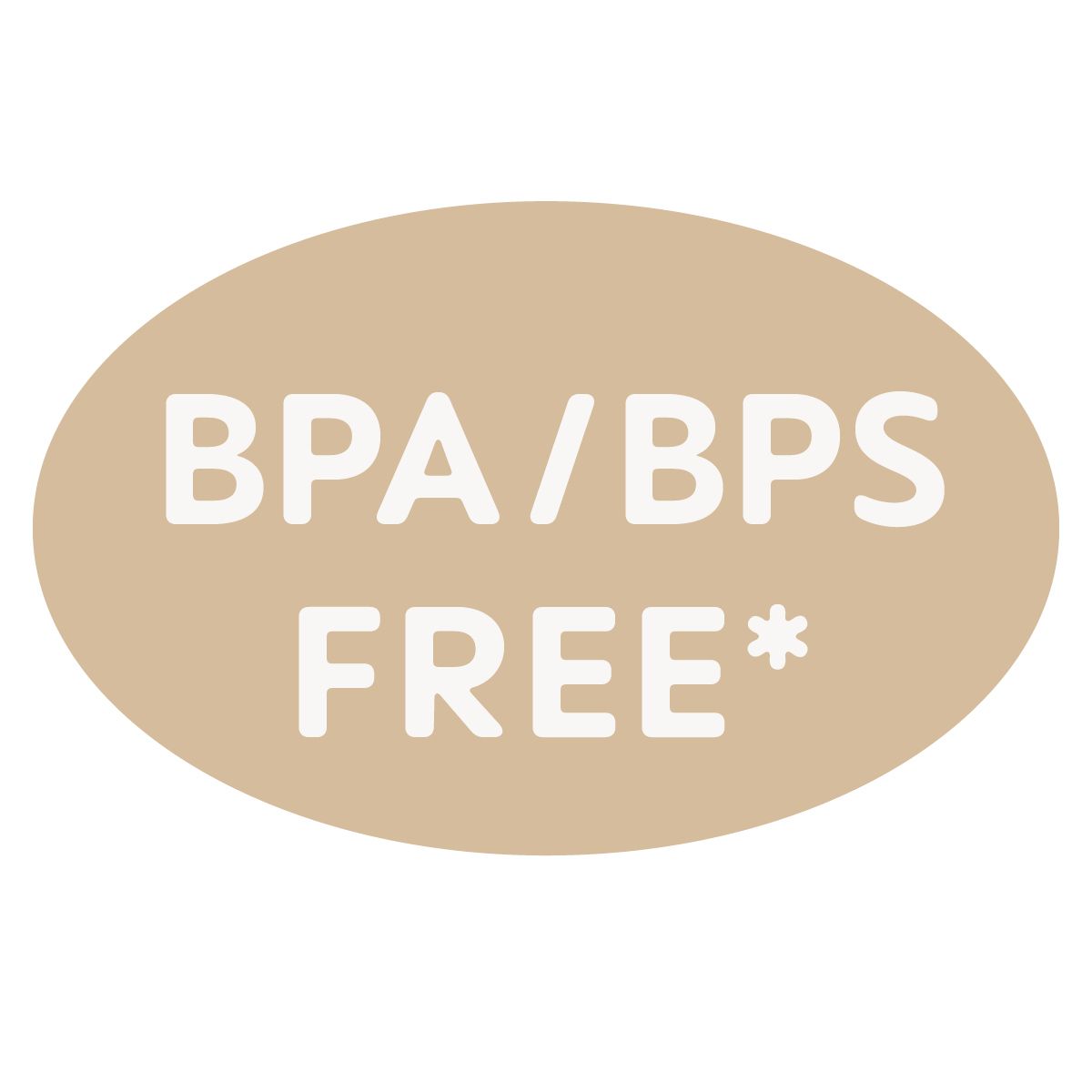
All MAM products are made from materials free of BPA and BPS
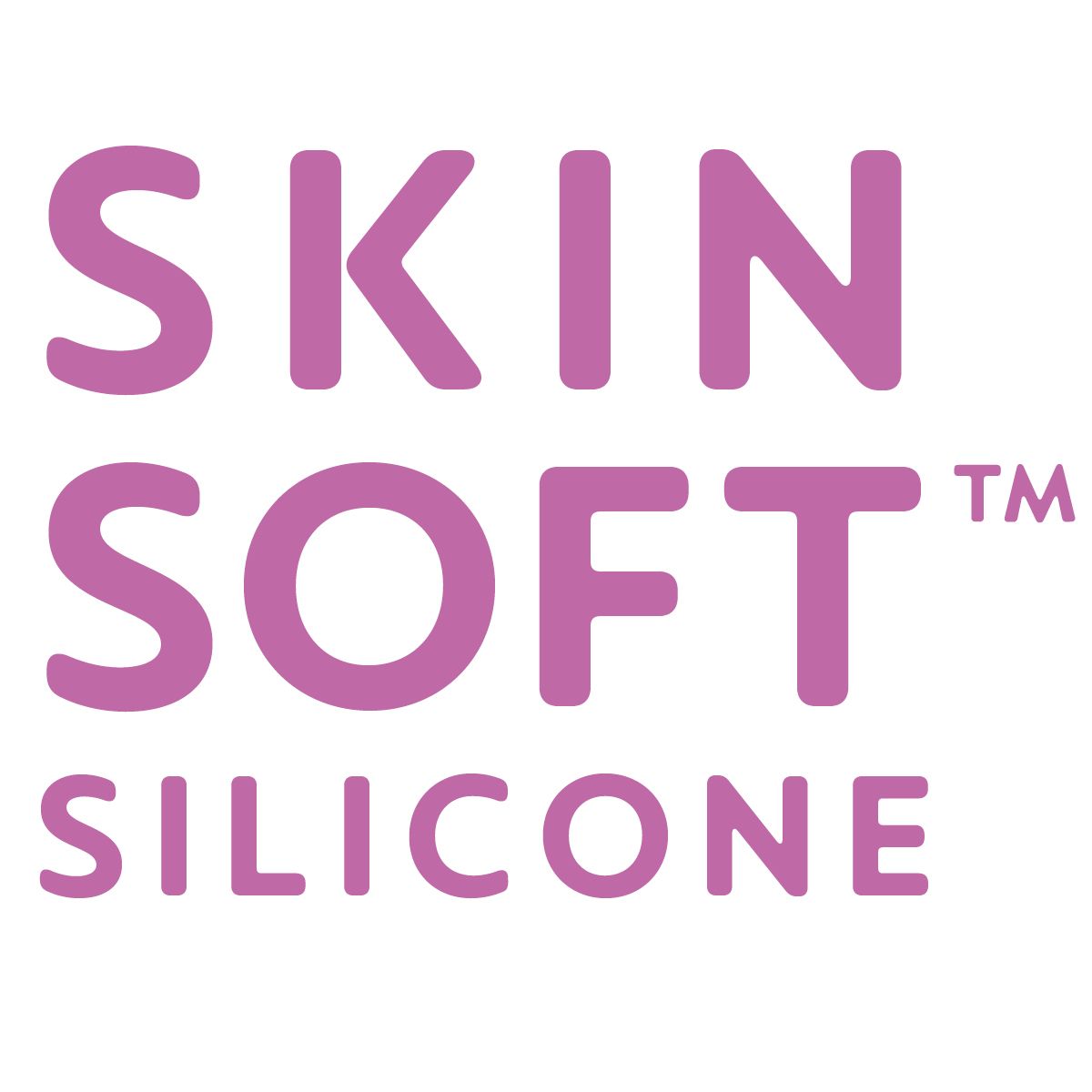
MAM SkinSoft™ Silicone: easily accepted by babies – for a familiar feeling
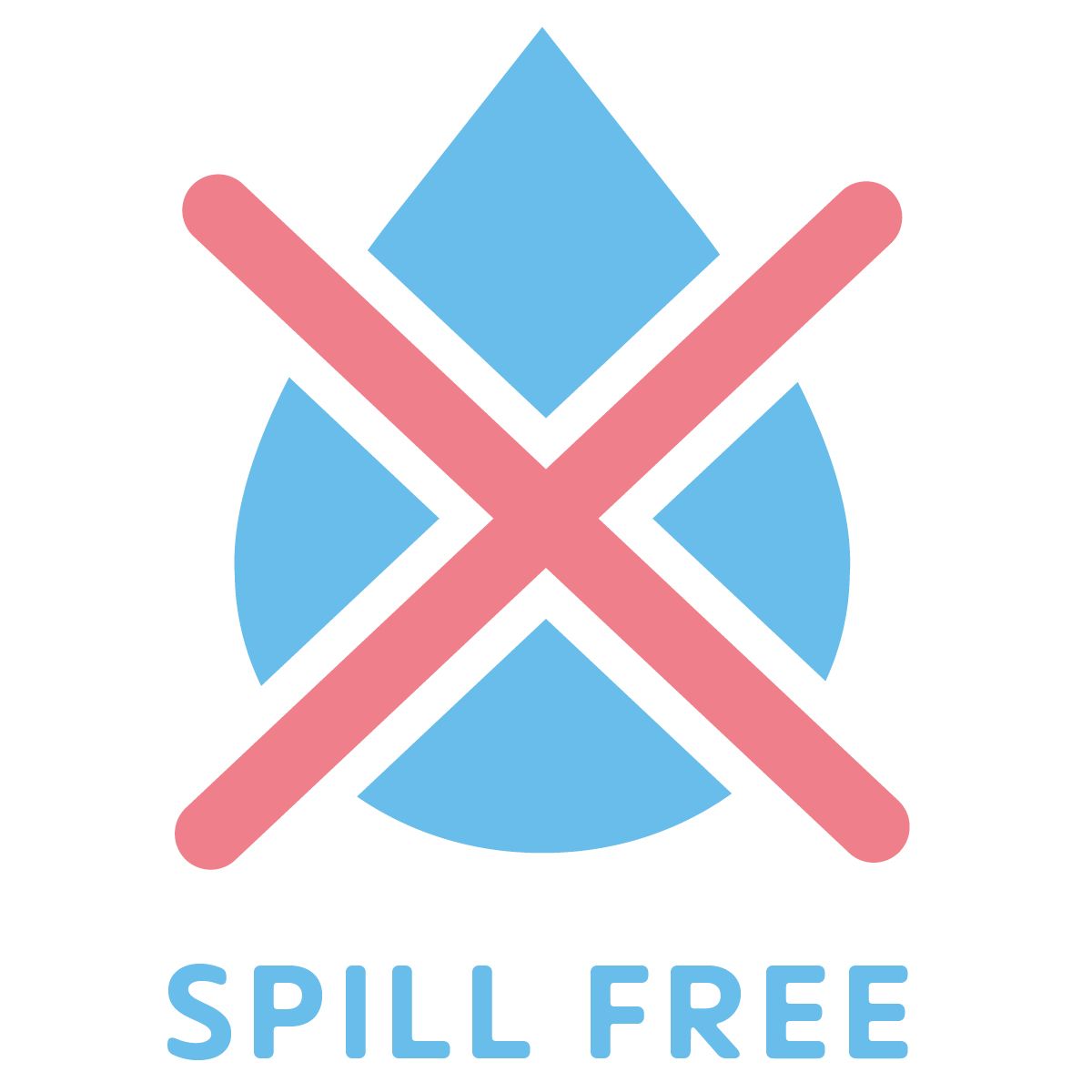
Spill-free - for a first independent feeding
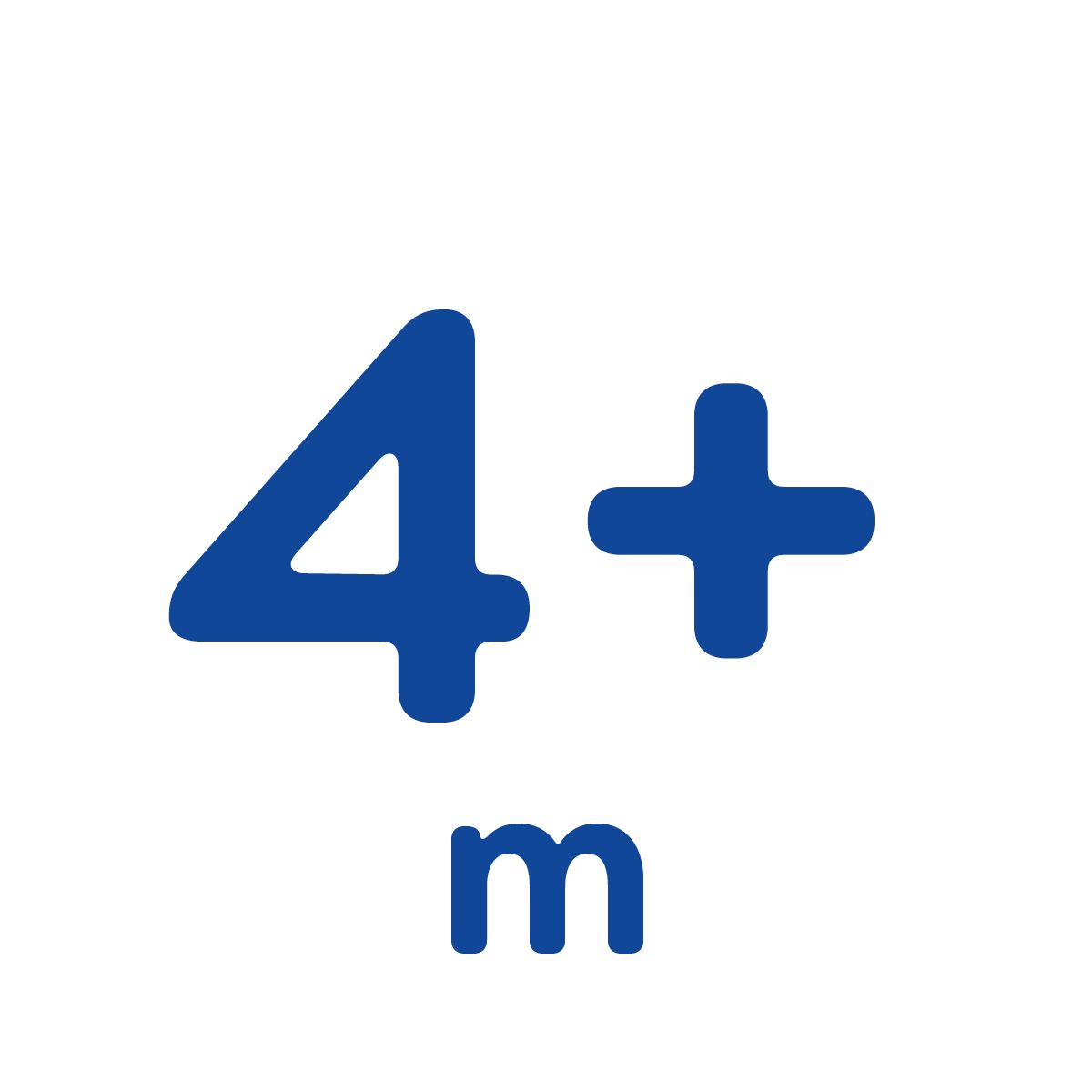
For babies from 4 months
¹ Market research 2009-2023, tested with 1,808 babies.

DEVELOPED WITH MEDICAL EXPERTS:
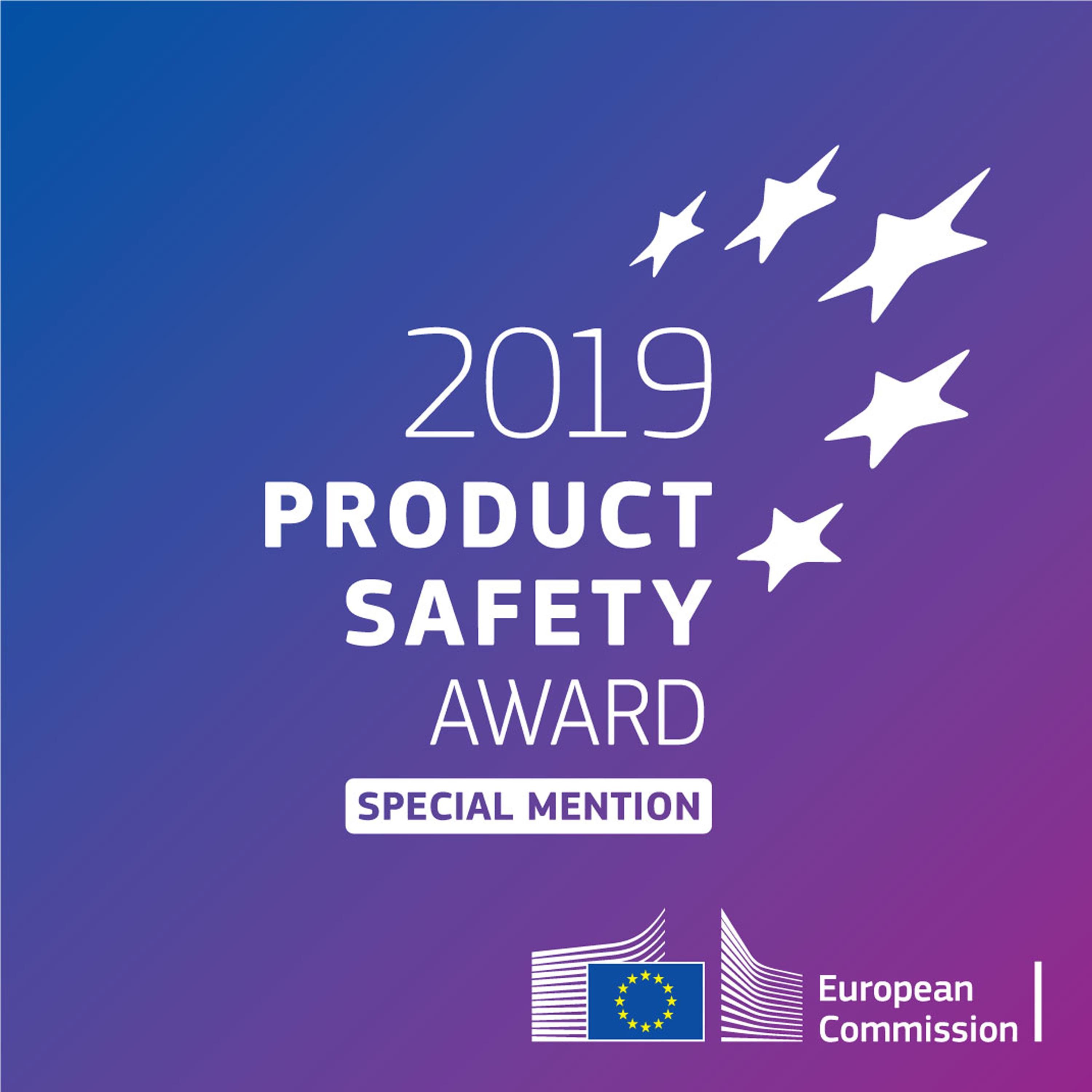
HONORED WITH THE EU PRODUCT SAFETY AWARD 2019
Four-month-old babies love drinking from a cup. The MAM Cup range provides them with the ideal support here. This will ensure that baby makes the perfect transition from breastfeeding or bottle feeding to independent drinking.
Bisphenol A (BPA) is an important component for the manufacturing of polycarbonate (PC), whereas Bisphenol S (BPS) is an organic chemical used to make polysulfone. Among other items, food packaging, plastic utensils and baby bottles are just a few examples of products made with PC, whereas the main usage of BPS is in thermal papers and inks. The problem: Trace amounts of chemical substances gradually leach out of the plastic into the food and might eventually get into the body. This can affect small children and infants in particular.
As a result of exposure to BPA, experts and studies have seen disruptions to the hormone system and brain, diabetes and heart damage as well as an increased risk of cancer. Although scientific evidence is not yet conclusive, the European Commission - based on the precautionary principle - has banned the usage of BPA in baby bottles in order to protect the health and safety of babies and small children.















